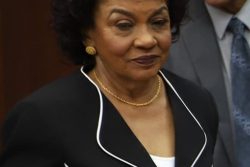On or around May 6, the United Kingdom will have a general election. Its outcome is far from certain. The opinion polls suggest that the gap between the two main parties is narrowing in the key marginal constituencies that the opposition Conservative Party must win if it is to take government from the ruling Labour Party. There are also signs that the third party, the Liberal Democrats, are gaining support and that large numbers of voters disillusioned with the political class, could skew the outcome by voting for fringe parties, independent candidates or not at all.
 The consequence some believe is that Britain is heading for a hung Parliament which might result in a Conservative or Labour coalition with the Liberal Democrats, a minority government or a tiny absolute Labour or Conservative majority.
The consequence some believe is that Britain is heading for a hung Parliament which might result in a Conservative or Labour coalition with the Liberal Democrats, a minority government or a tiny absolute Labour or Conservative majority.
All of this may matter little to a Caribbean that is steadily diversifying its international relations and which for the most part has come to perceive its ties with Britain as significantly less special than they once were.
However, the UK still has weight and is a significant and moderating global influence. In a Caribbean context it continues to play a role in the European Union as a friend of the region; it provides significant levels of security assistance to many Caribbean nations; its Overseas Territories lock it into the region; and there is a substantial if largely dormant Caribbean Diaspora living in Britain.
If the government in London does change, there is a greater likelihood of a more sympathetic hearing from the Conservatives or Liberal Democrats, but as senior figures in both parties indicate, to be heard, the Anglophone part of the region will need to choose carefully its concerns given the UK’s many other pressing foreign policy priorities and budgetary constraints.
What this suggests is that the key for Caricom nations, if the relationship with the UK is not to go into terminal decline, is to ensure that its community is professionally organised and its activists become engaged in UK politics as for instance have others from the Indian or Pakistani Diaspora.
Interestingly, and in contrast to decades in which there was little or no Caribbean community activism at a national level, the last twelve months have seen Caricom’s Diaspora in the United Kingdom and Caribbean Governments begin to join up their concerns. The issue that has triggered this is the UK’s Air Passenger Duty, which touches the community in the UK financially, negatively affects tourism and demonstrably discriminates in favour of the US over the Caribbean.
Recently there have been other developments pointing perhaps to a new and more active role for the Caribbean community in the UK. In the last weeks there have a series of community-wide political events.
These include political panel meetings organised by the Jamaica National Building Society (JNBS); the first of a number of events to mobilise the community on Air Passenger Duty during the UK election; and the creation of Labour Friends of the Caribbean group; a development suggesting that the Labour Party has recognised it can no longer take Caribbean community votes for granted.
In the case of the JNBS events, ‘Question Time’ style meetings had MPs and parliamentary candidates from the three main parties participate on panels with community activists to answer questions from the Diaspora.
What emerged at these meetings – all private sector sponsored – was interesting and warrants attention by the Caribbean and British governments and their diplomatic representatives.
At these events there was a strong sense that there is no longer a special relationship between the UK and the Caribbean, that the UK took the Caribbean for granted and there was now a need to determine what the region and its Diaspora wanted the relationship to be. It was felt that the community needed to become more engaged in UK politics at both local and national levels if its voice was to be heard and there was a need for greater representation in all of the mainstream political parties and in Parliament.
It was clear too that beyond issues like the UK/Caribbean relationship and Air Passenger Duty, there were other often deep concerns: fears about migration policy; a sense that the UK government needed to do more to foster trade ties between community business and the region; concern about institutional racism within the British system; and an interest in finding ways to ensure community concerns were put to and heard by the main political parties.
For years now Caribbean governments have been talking about a role for the Diaspora, with some nations regularly organising meetings at home to bring their extended community together.
But what is missing is the critical mass that can only come if such meetings, wherever they are held, leap national boundaries and lead to a manifesto that brings together the Caribbean and its community’s concerns in a manner that enables the hundreds of Caribbean national and political associations in the UK in support.
What has happened so far is encouraging but requires more focus, resource and a much clearer analysis and leadership from regional governments.
It also requires understanding of what it takes to create groups within the UK Parliament; how they need to be supported with accurate information; how this can be linked to community cells of activists; and how it all relates to obtaining positive results.
This is not rocket science nor is it interference in the domestic affairs of another nation. Evidence abounds as to how nations from Israel through India to Cuba have all established strong lobbies that ensure that the interests of their nation or extended community are fully taken into account.
If the Caribbean expects to be taken seriously in London and by extension in the US and Canada, it needs a co-ordinated and well delivered regional strategy for its worldwide Diaspora.




